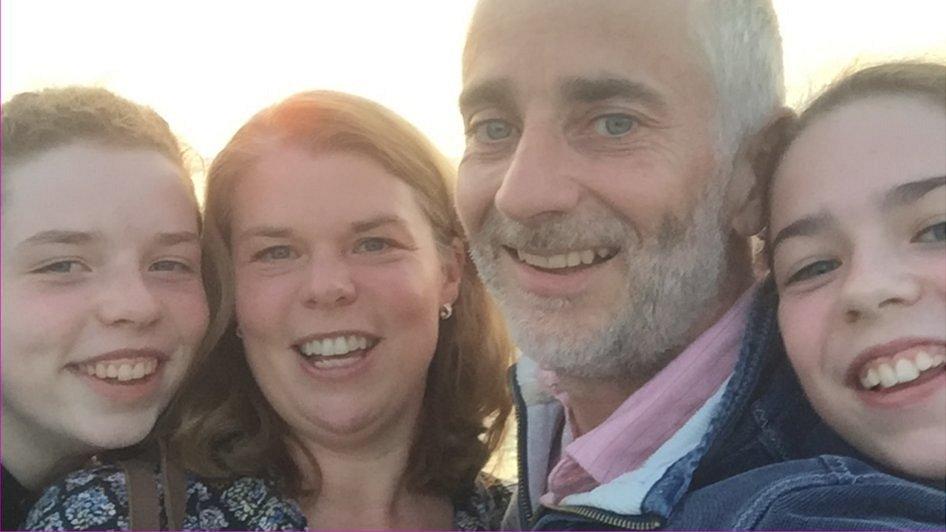Suicide rate rises for first time since 2013
- Published

The suicide rate was highest in men aged 45-49
The suicide rate in the UK has risen for the first time since 2013, official figures show.
Office for National Statistics data for 2018 showed 11.2 deaths from suicide per 100,000 people - up from 10.1 in 2017.
Changes to the way suicides are recorded were brought in midway through last year and may account for some of the rise, the ONS says.
However, the suicide rate is still lower than its 1980s peak.
'Gradual decline'
The ONS found three-quarters of deaths from suicide registered in 2018 were of men, with 17.2 deaths from suicide per 100,000, up from 15.5 per 100,000 in 2017.
Those in their late 40s remain the age group with the highest suicide rate, but young men aged 20-24 and those aged 80-84 saw significant increases.
A significant rise was also seen among young girls and women aged 10 to 24.
Scotland had the highest suicide rate with 16.1 deaths per 100,000 people; England had the lowest, with 10.3 deaths per 100,000.
Deaths from suicide are not registered until a coroner reports, which can take months or even years.
Nick Stripe, head of health analysis and life events at the ONS, said: "We saw a significant increase in the rate of deaths registered as suicide last year which has changed a trend of continuous decline since 2013.
"While the exact reasons for this are unknown, the latest data shows this was largely driven by an increase among men who have continued to be most at risk of dying by suicide.
"In recent years, there have also been increases in the rate among young adults, with females under 25 reaching the highest rate on record for their age group."
But he added: "Looking at the overall trend since the early 80s, we are still witnessing a gradual decline in the rate of suicide for the population as a whole.
"We will continue to monitor the recent increase, to help inform decision-makers and others that are working to protect vulnerable people at risk."
'Not inevitable'
Ruth Sutherland of the Samaritans said it was "extremely worrying" that the suicide rate had increased.
"Every single one of these deaths is a tragedy that devastates families, friends and communities. Whilst the overall rise has only been seen this year, and we hope it is not the start of a longer-term trend, it's crucial to have a better understanding of why there has been such an increase.
"We know that suicide is not inevitable, it is preventable and encouraging steps have been made to prevent suicide, but we need to look at suicide as a serious public health issue.
Tom Madders, from the charity YoungMinds, said: "It's concerning that there has been a reported rise in the number of young people dying by suicide.
"The reasons why young people feel suicidal are often complex, but we know that traumatic experiences at a young age - like bereavement, bullying or abuse - can have a huge impact on mental health. School pressure, concerns about how you look and difficult relationships with family or friends can also have a significant effect.
"We're seeing some much-needed investment in NHS mental health services - but we need much more action to ensure young people can get early help, long before they reach crisis point."
If you or someone you know are feeling emotionally distressed, these organisations offer advice and support. In addition, you can call the Samaritans free on 116 123 (UK and Ireland). Mind also has a confidential telephone helpline- 0300 123 339 (Monday-Friday, 9am-6pm).
- Published13 August 2019

- Published26 July 2019
